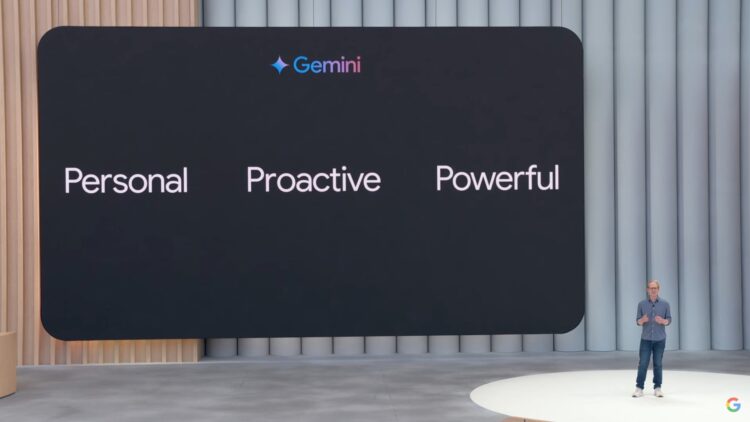Since Google first teased Project Astra before last year’s I/O, bits of it has permeated though Gemini Live, leading to the Android AI chatbot we have today. Its uses have expanded to the point of supplanting the old Google Assistant. With that, the internet search giant also wants the new assistant to be pushed further, to the point of anticipating your needs and helping you resolve them before you even ask it to.
As the company announced during this year’s I/O, one of the goals Google has for Gemini is for it to be a universal assistant, and part of the process to achieving artificial general intelligence (AGI). To that end, there’s a new demo video for Project Astra.

Part of that first bit is to make Gemini more proactive. The example provided on stage is Gemini seeing in a student’s calendar that they have a test coming up in a week. It then goes through notes – even handwritten ones – and other materials that the student saved, and prepares a personalised pop-quiz for the student. And if you need further help, it can come up with custom explainers based on your interests. Of course, all this is depended on you granting it permission to access all of the above first.

Going further, The Verge reports that the goal is for a Project Astra-based assistant to always be watching, listening, and waiting for the right time to step in. The report cites an example by Google DeepMind researcher Grey Wayne, which has the assistant watching you do your homework, and point out a mistake you made when you made it. Or to remind you to eat when appropriate to your intermittent fasting schedule.
The challenge for this process, is for the assistant to “read the room”. DeepMind CEO Demis Hassabis says that, if it couldn’t do that, and speaks up when it’s not needed, then “no one would use it”. Of course, the functions that require it to be always watching is still along way away. But the bits that lets it go through your files and data – if you allow it – will be part of Gemini soon, though no date was provided.
(Source: Google [1], [2], The Verge)


